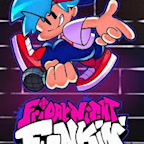Ads
related to: free premium roblox codes generatoramazon.com has been visited by 1M+ users in the past month
Search results
Results From The WOW.Com Content Network
Robux allows players to buy various items, and are obtained by purchase with real currency, from a recurring stipend given to members with a Premium membership, and from other players by producing and selling virtual content in Roblox.
In the United States, internet censorship is the suppression of information published or viewed on the Internet in the United States. The First Amendment of the United States Constitution protects freedom of speech and expression against federal, state, and local government censorship. In 2014, the United States was added to Reporters Without ...
Wikipedia:Random. On Wikipedia and other sites running on MediaWiki, Special:Random can be used to access a random article in the main namespace; this feature is useful as a tool to generate a random article. Depending on your browser, it's also possible to load a random page using a keyboard shortcut (in Firefox, Edge, and Chrome Alt-Shift + X ).
Typical extrasensory perception (ESP) hack showing the health, name and bounding box of an entity that is not otherwise visible. On online games, cheating subverts the rules or mechanics of the games to gain an unfair advantage over other players, generally with the use of third-party software.
We support over 70+ languages. Start for free. Get AOL Mail for FREE! Manage your email like never before with travel, photo & document views. Personalize your inbox with themes & tabs.
A CAPTCHA ( / ˈkæp.tʃə / KAP-chə) is a type of challenge–response test used in computing to determine whether the user is human in order to deter bot attacks and spam. [1] The term was coined in 2003 by Luis von Ahn, Manuel Blum, Nicholas J. Hopper, and John Langford. [2]






















